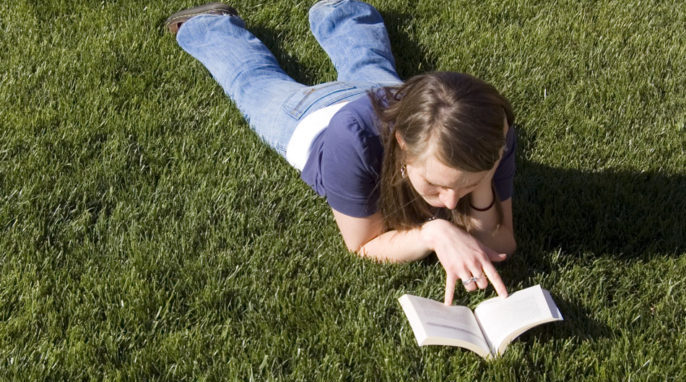
Kate is a journalist, digital content editor, and SEO specialist, with 20+ years of experience in print and digital communications. In leading the online publishing and marketing efforts of Science Connected, Kate is spreading science literacy, social good, and environmental sustainability while debunking pseudoscience through science journalism.

Ongoing Human Evolution Revealed in Data
A research team at Columbia University has conducted a large-scale study of ongoing human evolution. Genetic data reveals how humans are evolving. By Kate Stone When I was about nine years old, a young schoolmate demanded to know, “If evolution is real, then why isn’t it happening now?” Being nine and not a biologist, I ...
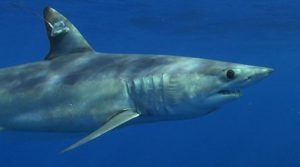
Shortfin Mako Shark under Threat
The shortfin mako shark is disappearing 10 times faster than previously thought. How are researchers trying to change this process? By Kate Stone The shortfin mako shark is the fastest shark in the world. Its top cruising speed has been recorded at 40 kilometers per hour (kph), or 25 mph, with bursts of up to ...
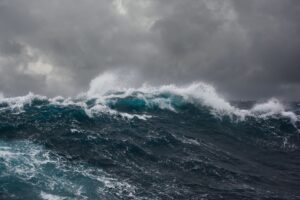
New Desalination Tech Turns Saltwater into Drinking Water
New desalination tech, a graphene sieve, has the potential to be smaller, faster, and more easily adjustable than existing methods. By Kate Stone Water, water, every where,And all the boards did shrink;Water, water, every where,Nor any drop to drink. —Rime of the Ancient Mariner Poet Samuel Taylor Coleridge published those lines in 1798. In 2017, ...

Public Health Fictions: An Interview with Miriam Doyle
Miriam Doyle is a public health professional and one of an estimated forty thousand people who participated in the 2017 March for Science in Washington, DC. By Kate Stone Miriam Doyle with sign at the March for Science in Washington, DC, on April 22, 2017. Photo by Hannah Johnson. Science Connected: What motivated you to ...

Scientists and Social Media
Social media is an efficient way for research scientists to connect with the public at large. It is a tool that can reach millions of people with important information and opportunities. By Kate Stone Dr. Bill Sullivan is a Showalter Professor of Pharmacology, Toxicology, Microbiology, and Immunology at the Indiana University School of Medicine. That’s ...
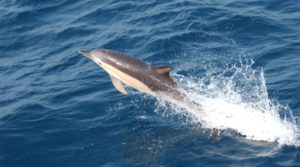
Studying the Dolphin Genome for Human Health
Studying the dolphin genome is revealing information that could benefit human health. Scientists are building a database full of dolphin genetic data. By Kate Stone Humans have long been enamored with dolphins. There is something irresistible about dolphins’ playfulness and agility in the water. We portray them in television and film as heroes saving humans ...

How I got into science blogging
Blogger and photographer Steven Spence explains how he got started in science blogging and amateur science communication. By Steven Spence How in the world did I wind up in science communication? Curiosity and a determination to share original work on social media. “In its encounter with Nature, science invariably elicits a sense of reverence and ...
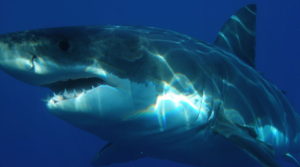
How Do Big Sharks Beat Cancer?
Large sharks are known to heal rapidly and resist some diseases including cancer. Could humans learn how sharks beat cancer and copy their ways? By Kate Stone Wouldn’t it be great to have the power to rapidly heal from injuries or to resist cancer? A human with those coveted abilities might be viewed as the ...

Oviraptors in the Wild
By Kate Stone Oviraptorosaurs are an odd-looking group of feathered, bird-like theropod dinosaurs. They tend to have short skulls and small, toothless mouths. Now, an international team of paleontologists is reporting on a new oviraptorosaur discovery from Ganzhou, Tongtianlong limosus. The fossil is a remarkably well-preserved specimen. The animal seems to have died with its ...
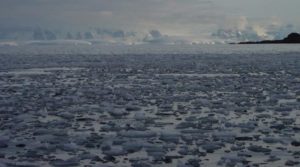
What Happens When Antarctica Melts?
By Kate Stone Between December 2001 and February 2002, the Antarctic continent underwent a season of intense melting. Aside from the loss of ice, what really happens when Antarctica melts? New research reveals that the changes range from sped-up microbial food webs to shifting penguin populations. The clash of two climatic cycles, the Southern Annular ...
